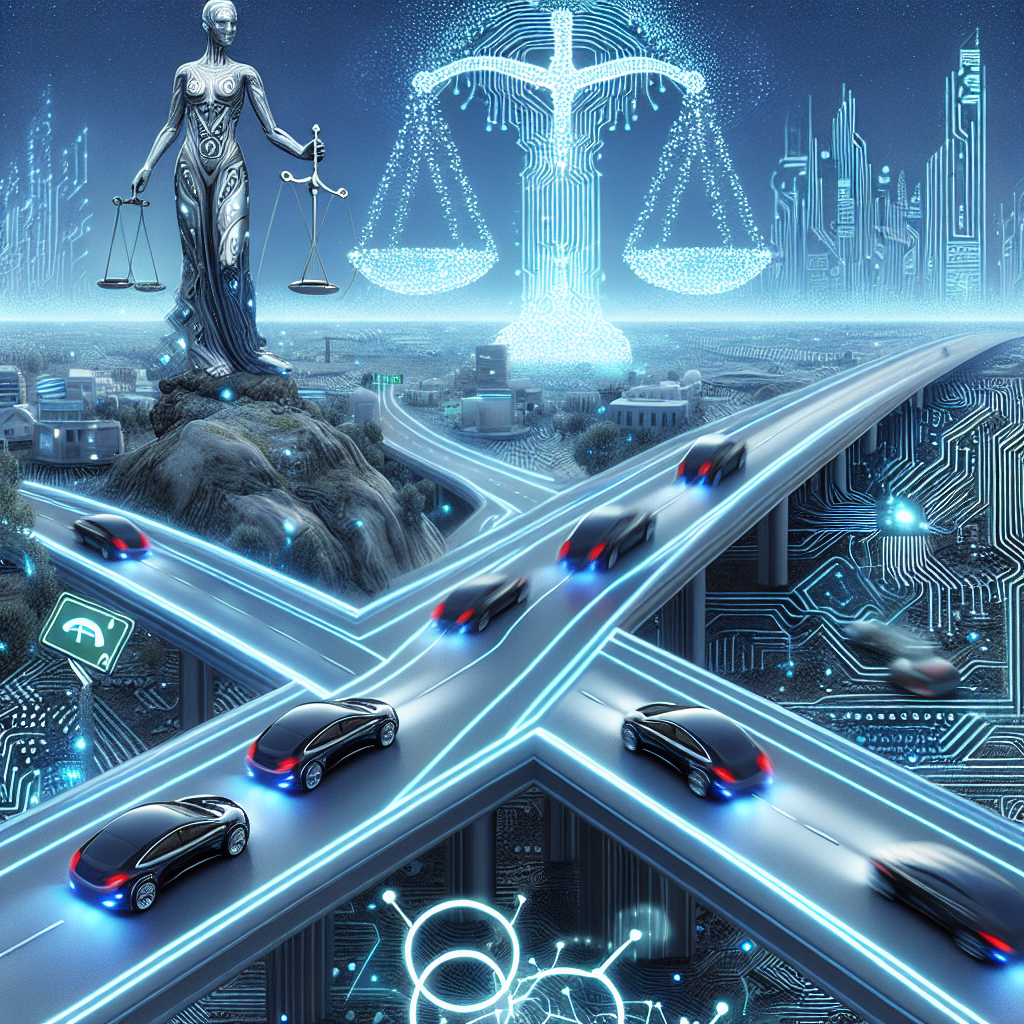The Ethics of AI in Autonomous Vehicles
Introduction
Autonomous vehicles, also known as self-driving cars, are becoming increasingly prevalent in today’s society. These vehicles use artificial intelligence (AI) to navigate the roads without human intervention. While autonomous vehicles have the potential to revolutionize transportation and improve road safety, they also raise important ethical questions. In this article, we will explore the ethics of AI in autonomous vehicles and the implications for society.
Ethical Considerations
One of the most pressing ethical considerations surrounding autonomous vehicles is the issue of decision-making in the event of an unavoidable accident. Autonomous vehicles are programmed to make split-second decisions in situations where an accident is imminent. For example, if a pedestrian suddenly steps into the path of an autonomous vehicle, the vehicle must decide whether to swerve to avoid the pedestrian, potentially putting the occupants of the vehicle at risk, or stay on course and hit the pedestrian.
This raises the question of how these decisions should be made. Should autonomous vehicles prioritize the safety of the occupants of the vehicle, or should they prioritize the safety of other road users, such as pedestrians and cyclists? Some argue that autonomous vehicles should prioritize the safety of the occupants, as they are the ones who have chosen to use the vehicle. Others argue that autonomous vehicles should prioritize the safety of other road users, as they are more vulnerable in the event of an accident.
Another ethical consideration is the potential for bias in the programming of autonomous vehicles. AI systems are only as good as the data they are trained on, and if that data is biased, it can lead to biased decision-making. For example, if an autonomous vehicle is trained on data that is biased against a particular group of people, it may be more likely to make decisions that are harmful to that group.
Furthermore, there is the issue of accountability in the event of an accident involving an autonomous vehicle. Who is responsible when an autonomous vehicle is involved in an accident? Is it the manufacturer of the vehicle, the programmer of the AI system, or the owner of the vehicle? This raises important questions about liability and the need for clear regulations and guidelines.
FAQs
Q: Are autonomous vehicles safe?
A: Autonomous vehicles have the potential to be safer than human-driven vehicles, as they are not susceptible to human error such as distracted driving or drunk driving. However, there are still challenges to be overcome, such as programming ethical decision-making and ensuring that the AI system is free from bias.
Q: How do autonomous vehicles make decisions?
A: Autonomous vehicles use sensors, cameras, and other technology to gather information about the road and surroundings. They then use AI algorithms to analyze this information and make decisions about how to navigate the road.
Q: Who is responsible in the event of an accident involving an autonomous vehicle?
A: The question of responsibility in the event of an accident involving an autonomous vehicle is still being debated. In some cases, the manufacturer of the vehicle may be held responsible, while in others, it may be the programmer of the AI system or the owner of the vehicle.
Q: How can we ensure that autonomous vehicles are ethical?
A: Ensuring that autonomous vehicles are ethical requires clear regulations and guidelines, as well as transparency in the programming of the AI system. It is also important to have mechanisms in place for accountability in the event of an accident.
Conclusion
The ethics of AI in autonomous vehicles is a complex and multifaceted issue that raises important questions about decision-making, bias, and accountability. While autonomous vehicles have the potential to revolutionize transportation and improve road safety, it is crucial that we address these ethical considerations to ensure that they are used responsibly. By developing clear regulations and guidelines, promoting transparency in the programming of AI systems, and holding all stakeholders accountable, we can work towards a future where autonomous vehicles are safe, ethical, and beneficial for society as a whole.

